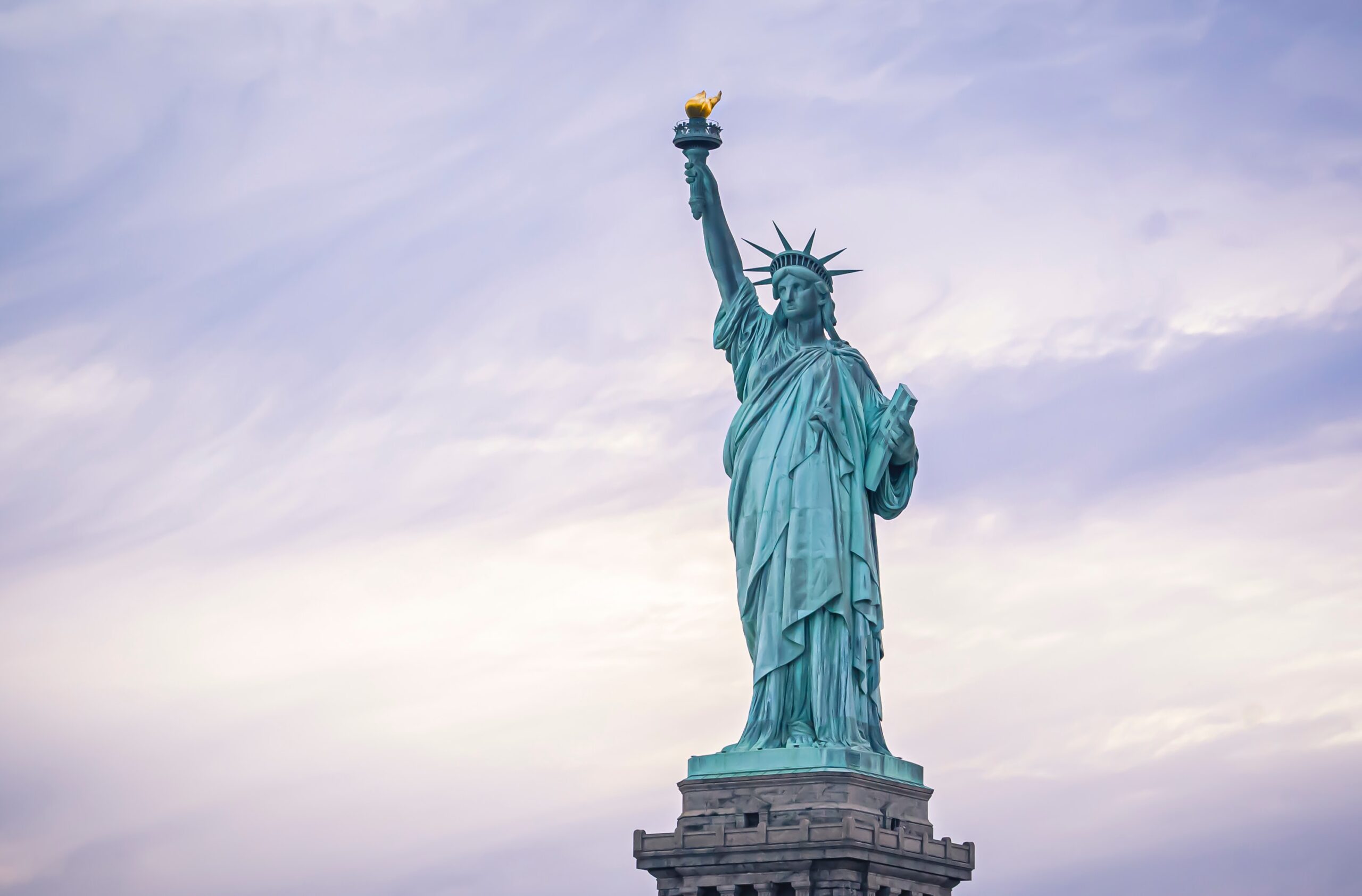“We must be free not because we claim freedom, but because we practice it.”
This powerful quote by American writer William Faulkner encapsulates the essence of freedom.
The Fourth of July, commonly known as Independence Day, is a significant holiday in the United States that commemorates the country’s declaration of independence from British rule. On July 4, 1776, the Continental Congress adopted the Declaration of Independence, a historic document drafted by Thomas Jefferson, asserting the American colonies’ right to self-governance and individual freedoms.
This bold step marked the beginning of a revolutionary movement that led to the formation of a new nation. Today, the Fourth of July is celebrated with great enthusiasm across the United States, with fireworks, parades, barbecues, and various festivities. It is a time for Americans to reflect on the principles of liberty, equality, and the pursuit of happiness upon which their nation was founded, while also welcoming visitors from around the world to share in the spirit of this historic day.
Independence Day in the United States reminds us all that freedom is not merely a theoretical concept or a passive state; it is an active practice that requires courage, resilience, and an unwavering commitment to upholding the values it represents.

Catalyzing Freedom Through Risk-Taking
Freedom is a dynamic force that thrives on exploration, innovation, and growth. It begins with a willingness to step outside our comfort zones and embrace risk. Risk-taking becomes the catalyst for unlocking our true potential and experiencing the transformative power of freedom. By taking calculated risks, we challenge the status quo, push our boundaries, and open ourselves up to new possibilities.
Stepping outside our comfort zones is a leap of faith—a conscious decision to confront fear, uncertainty, and the potential for failure. It is in these moments of discomfort and vulnerability that we truly begin to practice freedom. By embracing risks, we break free from the limitations imposed by routine and familiarity, allowing us to embark on a journey of discovery and evolution.
America’s founders were courageous individuals who took bold risks in their pursuit of freedom and independence. They challenged the status quo, defying a powerful empire to establish a new nation based on principles of liberty.
The signing of the Declaration of Independence in 1776 was an audacious act that exposed them to great personal danger, as they risked their lives, fortunes, and reputations in their quest for a better future. Through their writings and actions, figures like Thomas Jefferson, George Washington, and Benjamin Franklin inspired a revolutionary movement that demanded bravery and sacrifice from its participants. By taking risks and standing up against oppressive rule, these visionary leaders paved the way for a nation built on the ideals of individual rights, democratic governance, and the pursuit of happiness.
The founding fathers of America were not only visionary statesmen and political leaders but also remarkable entrepreneurs who possessed a spirit of innovation and enterprise. Their courageous actions continue to shape the United States to this day, serving as a testament to the transformative power of risk-taking in the face of tyranny.

Bouncing Back from Hardship
Resilience is the bedrock upon which the concept of freedom stands. It is the unwavering ability to bounce back better from setback, adapt to change, and persist in the face of adversity. As we navigate the path of practicing freedom, we inevitably encounter obstacles and challenges that test our resolve. However, it is our resilience that empowers us to navigate these hurdles, learn from failures, and emerge stronger and more determined than before. Resilience becomes the guiding force that enables us to persevere in the pursuit of freedom, even when the path seems arduous and daunting.
America’s founders demonstrated remarkable resilience in the face of numerous challenges and setbacks. They confronted immense adversity throughout the Revolutionary War, enduring hardships, scarcity, and the constant threat of defeat. Their resilience was evident in their unwavering determination to persevere, even when the odds seemed insurmountable. From George Washington’s leadership and strategic resilience on the battlefield to the perseverance of soldiers enduring harsh conditions, the founders exemplified resilience in action. They faced numerous defeats and setbacks but refused to be deterred, adapting their strategies, rallying support, and displaying unwavering resolve. Their ability to bounce back from setbacks, learn from failures, and maintain their commitment to the cause of independence played a pivotal role in their ultimate success. It was through their resilience that they established a foundation for a new nation, firmly rooted in the principles of liberty, self-governance, and the unyielding spirit of resilience.
Developing a resilient mindset is paramount when it comes to practicing freedom. It involves a deep-rooted recognition that setbacks and failures are not permanent, but rather valuable opportunities for growth and learning.
Embracing a resilient mindset allows us to view obstacles as stepping stones towards personal and collective progress. Rather than succumbing to despair or giving up, we choose to rise above adversity, armed with the belief that challenges present opportunities for transformation.
A resilient mindset is not simply a product of circumstance or luck. It is a deliberate practice that requires conscious effort and self-awareness. Nurturing resilience involves developing a strong understanding of the realities of the now, learning from past experiences, and reframing failures as opportunities for growth.
Resilience serves as an empowering force, not only in our individual lives but also within our communities and society as a whole. When we practice freedom with resilience, we become beacons of inspiration and hope for others. Our ability to overcome challenges and persist in the face of adversity serves as a testament to the power of resilience. By embodying this resilient spirit, we encourage and uplift those around us, fostering a collective sense of strength, determination, and unity in the pursuit of freedom.

Nurturing Freedom Through Learning
Every risk faced and every challenge encountered presents an opportunity for learning, growth, and the development of resilience. It is through these experiences that organizations and communities gain wisdom, cultivate resilience, and refine their understanding of what freedom means in the context of collective progress. By embracing risk and resilience, they embark on a transformative journey towards organizational and community resilience.
The founders of America exhibited a strong commitment to continuous learning throughout their revolutionary journey. They recognized that knowledge and adaptability were crucial for success in their pursuit of freedom and the establishment of a new nation. They sought wisdom from diverse sources, studied historical examples of governance, and engaged in intellectual debates to shape their understanding of democratic principles. The founders were avid readers, drawing inspiration from Enlightenment thinkers and classical philosophy to inform their ideologies and decision-making. They also learned from their own experiences and mistakes, adapting their strategies and approaches based on the changing circumstances of the war and the challenges they encountered.
Their commitment to continuous learning enabled them to refine their vision, refine their governance structures, and ensure the longevity of their revolutionary ideals. By embracing a mindset of continuous learning, the founders set the stage for an evolving nation that would value education, intellectual curiosity, and the pursuit of knowledge as cornerstones of a thriving democracy.
Learning from risk and resilience enables organizations and communities to develop a deeper understanding of their strengths, weaknesses, and collective aspirations. Each risk encountered and every challenge overcome provides insights into areas for improvement, the importance of collaboration, and the necessity of building adaptive capacity. Organizations can use these insights to refine their strategies, optimize their processes, and foster a culture of resilience and innovation. Communities, on the other hand, can leverage the lessons learned to strengthen their social networks, enhance their infrastructure, and develop robust systems for disaster preparedness and response.
Moreover, the practice of risk and resilience in organizations and communities extends beyond their own boundaries. It becomes a means to contribute to the broader societal well-being and progress. Organizational resilience allows companies to create sustainable business models, contribute to economic growth, and generate employment opportunities. They become agents of positive change by embracing ethical practices, supporting local initiatives, and investing in the communities they operate in. Similarly, resilient communities act as the foundation for a thriving society, fostering social cohesion, addressing inequalities, and advocating for the well-being of their members.

Extending Freedom to Others
Practicing freedom transcends our individual pursuits; it encompasses the responsibility to extend freedom to others and work towards building a just and inclusive society. It is through recognizing the inherent worth and dignity of all individuals that we promote equality, human rights, and social justice. Embracing diversity, inclusivity, and respect for others’ freedom becomes the cornerstone of strengthening the fabric of our communities and creating a foundation for a more harmonious and progressive society.
The United States is often referred to as the “great melting pot” due to its rich history of cultural diversity and the blending of various traditions, beliefs, and ethnicities. From its earliest days, the United States has been a land of immigrants, attracting people from all corners of the globe seeking a better life and opportunities. This diverse influx of individuals and cultures has shaped the American identity and contributed to the unique tapestry of American society. The great melting pot metaphor captures the idea that different cultures and backgrounds come together, combining their traditions, languages, and customs to form a unified and vibrant whole. The United States has been enriched by the contributions of countless immigrant communities, fostering a sense of pluralism and acceptance. While challenges and struggles have accompanied this process, the great melting pot has served as a symbol of inclusivity, cultural exchange, and the power of diversity in shaping the nation’s identity.
The history of equality in the United States is a complex and evolving narrative that has been marked by progress, setbacks, and ongoing struggles. The ideal of equality was enshrined in the founding documents of the nation, with the Declaration of Independence asserting that “all men are created equal.” However, the reality of equality has been far from realized throughout much of U.S. history. The early years of the nation were marred by the institution of slavery, denying millions of African Americans their basic human rights. It was not until the Civil War and the subsequent Emancipation Proclamation that slavery was formally abolished. Yet, the fight for equality did not end there. The Jim Crow era brought about racial segregation and systemic discrimination, leading to the civil rights movement of the 1950s and 1960s, which aimed to dismantle segregation and secure equal rights for African Americans. This pivotal movement led to landmark legislation, including the Civil Rights Act and the Voting Rights Act, which helped advance equality in the United States. The struggle for equality continues today, as efforts are made to address systemic racism, gender inequality, LGBTQ+ rights, and other forms of discrimination. The history of equality in the United States is an example of the ongoing pursuit of justice and the recognition that true equality requires a constant commitment to change and progress.
Extending freedom to others begins with acknowledging that every person, regardless of their background, deserves equal rights and opportunities. By championing equality, we strive to eradicate discrimination and prejudice in all its forms. This includes fighting against systemic barriers that hinder individuals from fully exercising their freedoms and ensuring that everyone has an equal chance to succeed and thrive.
Inclusivity plays a pivotal role in extending freedom to others. It means actively embracing and valuing diversity in all its forms. By fostering an inclusive environment, we create spaces where every voice is heard, respected, and valued. Inclusivity allows individuals to express themselves authentically, contributing to a rich tapestry of ideas, perspectives, and experiences that fuel progress and innovation.
Respecting others’ freedom becomes a guiding principle in our interactions and relationships. It involves honoring each person’s right to express themselves, make choices, and live according to their own beliefs and values, as long as it does not harm others. Respecting others’ freedom means embracing dialogue, empathy, and understanding, even when we encounter differing viewpoints. It is through respectful engagement that we can bridge divides, foster compassion, and build bridges of cooperation and mutual support.
Promoting freedom for others requires actively advocating for human rights and social justice. It means speaking up against injustices, standing in solidarity with marginalized communities, and working towards dismantling systemic inequalities. By engaging in advocacy and activism, we become agents of change, striving to create a society that upholds the principles of freedom, fairness, and compassion.
Extending freedom to others is not merely an act of benevolence; it is an essential aspect of our collective well-being. When we create a society where everyone has the opportunity to exercise their freedoms, we foster social cohesion and unity. By embracing diversity and inclusivity, we tap into the wealth of ideas, talents, and perspectives that drive innovation and progress. In a just and inclusive society, the freedom of one individual enhances the freedom of all.

Celebrating Freedom in Practice
As we celebrate Independence Day in the United States on July 4th, it is an opportune time to reflect on the intertwined themes of risk, resilience, and freedom. On this day, we commemorate the hard-fought battles and sacrifices made by leaders who dared to take risks and embrace the uncertainty of seeking freedom from oppression. While far from perfect themselves, it is through their resilience in the face of adversity that a nation was formed and Americans enjoy the liberties and opportunities cherished today.
Just as the founders of America exhibited unwavering courage and resilience in their pursuit of freedom, we can draw inspiration from their legacy and apply it to our own lives and communities. July 4th serves as a reminder that freedom often comes at a price and requires the willingness to step outside our comfort zones, challenge the status quo, and confront the risks that come with protecting freedom, cultivating opportunity, and advocating for change.
As with all things in Resilience, freedom is not merely a concept to claim, but a practice to embody in our daily lives. By embracing risk, nurturing resilience, and working collectively towards a more just and inclusive society, we carry on the legacy of freedom that began on this historic day.
Author:
Paula Fontana
VP, Global Marketing
iluminr














